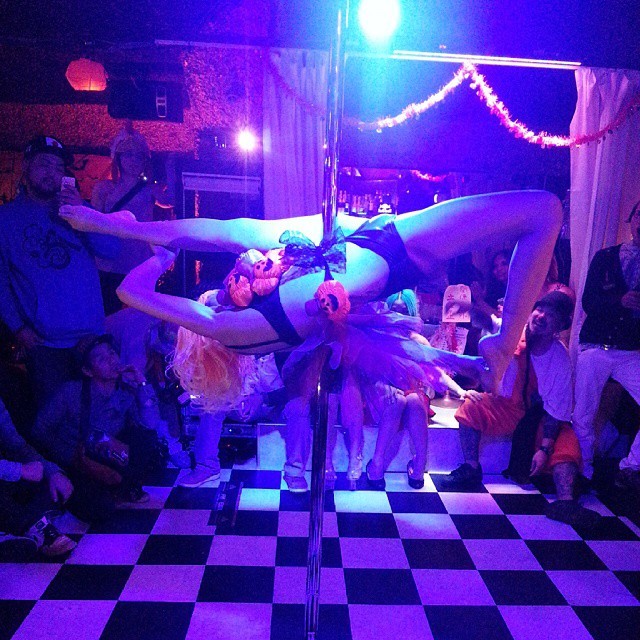
 Japan gets its Boogie Back
Japan gets its Boogie Back
Other | Friday 7th November 2014 | lenjibong
The culture of Japan has always been an fascinating one. From the crazy pachinko arcade houses with their never-ending streams of metallic balls and flashing lights to the roadside vending machines selling fresh eggs and used underwear, Japan has always seemed a wonderfully weird place. However, quite surprising perhaps is the Fueiho law that bans dancing in clubs and enforces a strict closing time of 12 am. On top of this, for venues to be allowed to operate as nightclubs, they must purchase a 'dancing license' and must have at least 66 square metres of unobstructed floor space.
Following the end of the Second-World War, the Fueiho policy was introduced in 1948 to enforce order amongst the Japanese population and to quell the prostitution rings that were linked to dance halls. However, until 2010 it was largely ignored by venues and clubbers alike when the law was reinforced following the death of a 22-year-old student in a brawl in Osaka. Concern about the country's youth culture and celebrity drug scandals also contributed to the reinforcement decision. Police raids ramped up, parties were shut down and 'no dancing' signs became a common site at many venues.
Picture a bouncer tapping you on the back with a flashlight but instead of scrutinising the contents of your pockets they point you in the direction of a 'no-dancing' sign. Japan’s nightlife swiftly became a dystopian nightmare for party-goers as many clubs fell into decline and the whole scene began to suffer. This is partly because many politicians in Japan were raised in a much more restrictive culture where dancing was deemed sinful. This is in stark comparison to other cities around the world, particularly in Berlin where raving played an important role in the upbringing of many of its influential figures. Therefore, the ban in Japan has appeared to be one based more on moral panic than logic. A moral panic that is extremely hypocritical in nature. As the previously thriving clubs in Japan's culturally influential city of Osaka were cracked down upon, lapdancing clubs in the downtown district of Amerikamura (often acting as sleazy hangouts for the Yakuza and politicians alike) were allowed to go on undisturbed, along with its booming escort business.

155,879 ravers joined together to fight for their cause under the consortium entitled 'Let's Dance', headed by Takahiro Saito, a Tokyo-based lawyer who sought to revive Japan's nightlife scene. Their efforts went a long way in making the Osaka District Court reassess the law in April and absolving a club owner who had been charged for violating the dance ban.
Japan's Prime Minister Shinzō Abe has recently joined the liberation movement saying: ‘Why should dancing be illegal? … It’s realistic to expect the law to be changed by the end of this year’. With the 2020 Olympics approaching, Abe wants to push through various deregulations that will see tourism increase and hopefully boost the economy. So go on and book your flight to Osaka because Japan’s nightlife is thankfully back in business!
